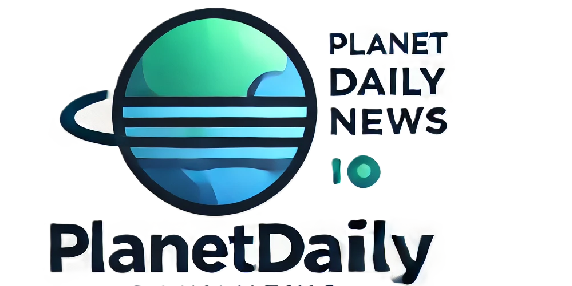A week of intense geopolitical movements and diplomatic shifts has reshaped the global political landscape. Between February 7 and February 14, 2025, critical events unfolded, including high-level negotiations on the Ukraine conflict, escalating protests in Slovakia, security discussions at the Munich Security Conference, and rising tensions in the Middle East. This article provides a detailed analysis of these developments, their implications, and the potential geopolitical ramifications in the context of World Geopolitics 2025.
Ukraine Conflict 2025: U.S. and Russia Move Toward Ceasefire Talks
Historic Trump-Putin Call Signals Diplomatic Shift in World Geopolitics 2025
On February 12, 2025, U.S. President Donald Trump and Russian President Vladimir Putin held a pivotal ninety-minute phone conversation, marking their first direct interaction since 2022. This discussion focused on potential avenues for a ceasefire in Ukraine, highlighting a possible turning point in the prolonged conflict. President Trump emphasized a commitment to “working closely” with Russia to bring an end to hostilities, assigning key U.S. officials, including Secretary of State Marco Rubio and National Security Advisor Michael Waltz, to lead the negotiations. The Kremlin, in a corresponding statement, acknowledged the talks and reiterated its stance on addressing the conflict’s underlying causes. The leaders exchanged invitations, with discussions about an upcoming visit by President Putin to Washington, D.C. This major diplomatic event is set to have far-reaching implications for World Geopolitics 2025.
Ukraine’s Position on U.S.-Russia Peace Talks in World Geopolitics 2025
Following the Trump-Putin conversation, Ukrainian President Volodymyr Zelenskyy issued a cautious response, emphasizing that Ukraine must be directly involved in any diplomatic resolution. European leaders, including German Chancellor Olaf Scholz and NATO Secretary General Mark Rutte, also stressed that any peace agreement must be a multilateral effort. They rejected the notion of a “dictated peace” and advocated for inclusive talks that prioritize Ukraine’s sovereignty and security. The European Union has also voiced concerns about Russia’s long-term intentions and emphasized that economic and military support for Ukraine would continue until a mutually beneficial peace agreement is reached. As a key issue in World Geopolitics 2025, the outcome of these negotiations will shape the future of European security.

Economic and Market Reactions to the Potential Peace Agreement in World Geopolitics 2025
The possibility of a ceasefire in Ukraine has significantly impacted global markets. European stock exchanges experienced notable gains, particularly in industries reliant on stable energy prices. Natural gas prices saw a sharp decline, alleviating inflationary pressures across the European Union. While financial analysts predict potential interest rate cuts in the coming months due to decreased geopolitical risks, many remain cautious about overestimating the economic recovery. The disparity between U.S. and European stock valuations remains a topic of debate, with experts suggesting that factors such as the American tech industry’s dominance contribute more to market trends than wartime uncertainty. These market movements are being closely watched as part of World Geopolitics 2025.
Munich Security Conference 2025: Global Leaders Address Security Threats in World Geopolitics 2025
Key Topics and Notable Attendees in World Geopolitics 2025
The 61st Munich Security Conference, held from February 14, 2025, in Germany, brought together world leaders, diplomats, and defense officials to discuss pressing security challenges. European Commission President Ursula von der Leyen, NATO Secretary General Mark Rutte, U.S. Vice President JD Vance, and Ukrainian President Volodymyr Zelenskyy were among the high-profile attendees. The conference addressed a range of issues, including the ongoing war in Ukraine, global cyber threats, migration crises, and the evolving balance of power in international relations, making it a pivotal event in World Geopolitics 2025.
Vice President JD Vance’s Controversial Speech on European Security in World Geopolitics 2025
U.S. Vice President JD Vance delivered a highly debated speech at the Munich Security Conference, asserting that illegal migration is Europe’s “most urgent challenge.” He called for increased European contributions to Ukraine’s defense, emphasizing that the U.S. must prioritize its strategic focus on China. His remarks also criticized the annulment of Romania’s 2024 presidential election results due to alleged Russian interference, sparking backlash from European officials. German Defense Minister Boris Pistorius countered Vance’s assertions, stating that the U.S. should maintain a balanced approach to European security rather than shifting its primary focus to Asia. These discussions are crucial in shaping World Geopolitics 2025.
Bilateral Meetings at the Conference: U.S.-Ukraine and EU Strategies in World Geopolitics 2025
On the sidelines of the Munich Security Conference, Vice President Vance met with Ukrainian President Zelenskyy to discuss the future of U.S. military and financial aid to Ukraine. Zelenskyy sought firm security guarantees from Washington, advocating for a long-term partnership that would ensure Ukraine’s resilience against potential future aggression. Meanwhile, European leaders convened separately to explore independent defense initiatives, further reinforcing the EU’s ambition to establish strategic autonomy in security matters. These discussions are shaping the power dynamics of World Geopolitics 2025.

Middle East Tensions Escalate in World Geopolitics 2025
Iran-Israel Relations Reach a Critical Point in World Geopolitics 2025
In the Middle East, tensions between Iran and Israel have intensified following reports of an alleged cyberattack on key Israeli infrastructure. The Israeli government accused Iran of orchestrating the attack, leading to a sharp rise in diplomatic hostilities. The United Nations has called for an emergency meeting to address the escalating situation, urging both nations to seek diplomatic solutions rather than military confrontation. Analysts suggest that the ongoing hostility between Iran and Israel could lead to broader regional instability, making it a central issue in World Geopolitics 2025.
Conclusion: A Transformative Week in World Geopolitics 2025
From diplomatic breakthroughs in Ukraine to security discussions at the Munich Security Conference and rising tensions in Slovakia and the Middle East, this week has underscored the complex and evolving nature of World Geopolitics 2025. The coming weeks will determine whether these developments lead to lasting resolutions or further geopolitical instability.
Sources
- BBC News – https://www.bbc.com
- The Guardian – https://www.theguardian.com
- Reuters – https://www.reuters.com
- Al Jazeera – https://www.aljazeera.com
- The New York Times – https://www.nytimes.com
Read also: Technology and Innovation




